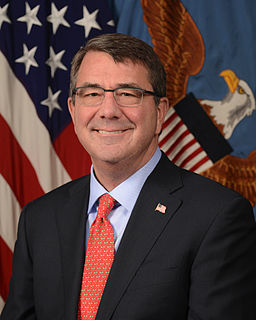A Quote by Rand Paul
In a reality, what we should be doing is having quiet diplomacy with the Russians to convince them that it's in their self-interest to have a more stable Middle East because trade enriches us all.
Related Quotes
Peace in Syria is not only our priority; it's a Middle Eastern priority, and when the Middle East is stable, the rest of the world is stable, because the Middle East is the heart of the world geographically and geopolitically, and Syria is the heart of the Middle East geographically and geopolitically.
We should not rule out the possibility that Trump's diplomacy could deescalate Middle East strife and international tensions, give the US a lower global profile and enable a more balanced world order to emerge, doing most of its damage here at home, through moves to implement his vision of nativist nationalism.
Israel's democracy is the bedrock on which our relationship stands. It's a shining example for people around the world who are on the frontline of the struggle for democracy in their own lands. Our relationship is also based on our common interest in a more stable and peaceful Middle East, a Middle East that will finally accord Israel the recognition and acceptance that its people have yearned for so long and have been too long denied, a Middle East that will know greater democracy for all its peoples.
Most Israelis have a sense, 'We just don't want to live in the Middle East anymore. We don't want it to be the Middle East. Were going to just build a wall or operate unilaterally' - not try to even use force as used to be the case to convince Arabs to accept Israel by convincing them that Israel is here to stay and then negotiating.
I think the public is very reluctant to get involved in more foreign wars, especially in the Middle East. And they understand, implicitly, that we go to war in the Middle East because of oil. And if we don't want to go to war in the Middle East, then we have to do something about the oil problem. And I think that view is gaining ground in the U.S.
I think we can't be naive in dealing with the Russians or dealing with the Syrians. But at the same time, I think we could try to encourage - and I think this is what diplomacy should do - encourage the self-interests of all parties to believe that it is in their best interest to get evil actors or rogue actors such as Syria or Iran, if you try to have less belligerent and less bellicose behavior.
Other than our disagreement over Syria, I would say our relationship with Russia is very good and we are seeking to broaden and deepen it. Twenty million Russians are Muslims. Like Russia, we have an interest in fighting radicalism and extremism. We both have an interest in stable energy markets. Even the disagreement over Syria is more of a tactical one than a strategic one. We both want a unified Syria that is stable in which all Syrians enjoy equal rights.
We have for decades now, and I've dealt with the Russians for 35 years, we have from time to time been able to, even though we have different interests, to align them. That alignment has become more and more difficult under Putin. You see that in Ukraine, you see it in the Middle East. To an extent where he actually defines Russian success as thwarting the United States.































